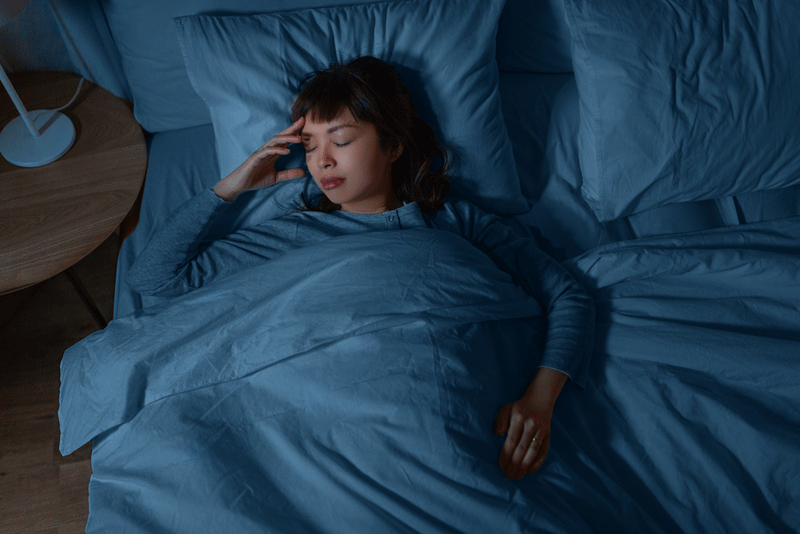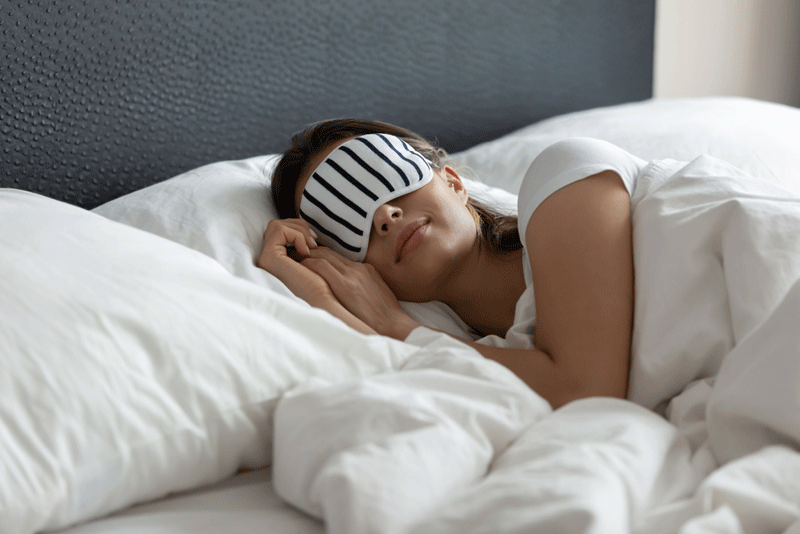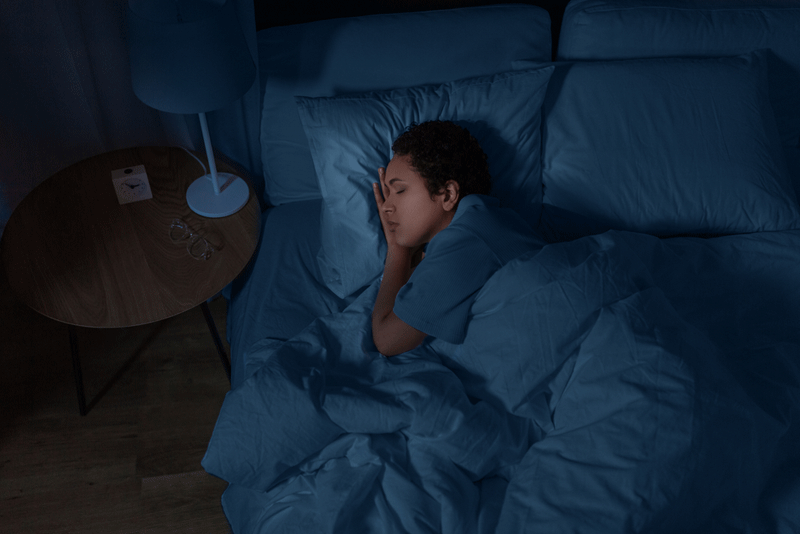Sleep is a fundamental biological process vital to maintaining physical and mental well-being. We spend about a third of our lives sleeping, and the quality of our sleep can significantly impact our overall health. One intriguing aspect of sleep that has gained attention in recent years is the direction in which we sleep. Is there a scientifically proven best direction to sleep that can enhance the quality of our slumber? This comprehensive article will explore the science behind directional sleep and how it can contribute to better sleep and improved health.
The Importance of Quality Sleep
Before we delve into the scientific aspects of sleeping direction, it’s crucial to understand why sleep is so vital. Falling asleep is a complex physiological process during which our bodies undergo essential repairs and therapeutic functions. Here are some key reasons for quality sleep:
- Physical Restoration: Sleep allows the body to repair tissues, restore energy, and strengthen the immune system. It also helps regulate various bodily functions, including hormone production and cell growth.
- Mental Rejuvenation: Sleep is essential for cognitive functions such as memory consolidation, learning, and problem-solving. It enhances creativity and decision-making abilities.
- Emotional Well-Being: Adequate sleep helps regulate mood and emotional stability. Lack of sleep is linked to an increased risk of mood disorders such as depression and anxiety.
- Physical Health: Chronic sleep deprivation has been linked to various health issues, such as obesity, diabetes, cardiovascular diseases, and a weakened immune system.
The Science Behind Directional Sleep
The concept of directional sleep has been around for centuries, and its origins can be traced back to ancient practices such as feng shui. According to this philosophy, different directions are believed to have unique energy flows that can significantly impact our physical and mental well-being. By aligning our sleeping position with the right direction, we can tap into these energies and promote a more restful and rejuvenating sleep experience.
-
East-West Alignment
Advocates of the east-west alignment suggest that sleeping with your head facing east and feet pointing west may promote better sleep. This theory is based on the idea that aligning your body with the Earth’s natural energy flow could improve sleep quality and increase morning energy.
-
North-South Alignment
Another popular theory is that sleeping in a north-south alignment, with your head pointing north and feet to the south, can enhance sleep quality. Proponents argue that this aligns the body with the Earth’s magnetic field, potentially resulting in deeper, more restful sleep.
-
Personal Preference
It’s worth noting that the optimal sleeping direction can differ from person to person, as some individuals may prefer sleeping on the floor. Personal comfort, preferences, room layout, and other environmental factors largely influence the most suitable direction for each person. Therefore, it’s important to consider these factors when determining the best sleeping direction for oneself.
Achieving a Peaceful Bedroom: Understanding the Principles of Feng Shui for a Good Night’s Sleep
Feng Shui seeks to harmonize energy flow, or “qi,” within our living spaces. When applied to the bedroom, Feng Shui can help create an environment that supports relaxation, tranquillity, and restorative sleep. Here are some key principles to consider for a good night’s sleep and wake-up refresh:
- Clutter-Free Space: One of the primary principles of Feng Shui is decluttering. A cluttered bedroom can disrupt the energy flow and create a sense of chaos. By removing unnecessary items, you can organize your bedroom to create a peaceful environment.
- Balanced Energy: Feng Shui emphasizes the importance of balance. Arrange your bedroom furniture and decor in a way that creates balance and symmetry. Avoid placing all the heavy or dark items on one side of the room, as it can cause an energy imbalance.
- Bed Placement: The placement of your bed is a crucial aspect of Feng Shui in the bedroom. Position your bed to have a clear view of the bedroom door while maintaining security and support. Avoid placing the bed directly with the bedroom door, which can lead to restless sleep.
- Colors and Materials: Feng Shui recommends using soothing colors in the bedroom, such as soft blues, greens, and neutral tones. Additionally, choose natural materials for your furniture and decor to create a connection with nature and promote a calming atmosphere.
- Lighting: Proper lighting is essential in Feng Shui. Use soft, diffused lighting in the bedroom to create a relaxed ambiance. Avoid harsh overhead lighting and use bedside lamps and candles to enhance the bedroom’s energy.
- Electronics: Electronics emit electromagnetic fields (EMFs), which can disrupt sleep patterns. Keep electronics, such as TVs and computers, out of the bedroom, or at least ensure they are turned off and unplugged during sleep.
- Personalization: Your bedroom should reflect your style and preferences. Incorporate artwork and decor that resonate with you, creating a more harmonious environment.
Sleeping Direction to Avoid
Did you know that the direction in which you sleep can significantly impact the quality of your sleep? Surprisingly, this simple choice can affect your sleep, brain health, and overall well-being. It’s worth considering your sleep direction to ensure you get the best night’s rest possible.
Sleeping Head Towards the North
- Why to Avoid: In many cultures, it is believed that sleeping with your head pointing north is inauspicious. While there is no scientific evidence to support this claim, it can still affect your mental peace if you are superstitious.
Sleeping Head Towards the West
- Why to Avoid: According to Vastu Shastra, an ancient Indian architectural science, sleeping with your head towards the west is not recommended. It is believed to lead to disturbed sleep patterns and restlessness.
Conclusion
While the scientific evidence supporting directional sleep is inconclusive, it’s essential to recognize that sleep is a highly individualized experience. What works for one person may only work for one person. Factors like comfort, habit, and personal preference should guide your sleeping direction.
To maximize the quality of your sleep, prioritize creating a comfortable and relaxing sleep environment. Ensure your mattress is supportive, maintain a consistent sleep schedule, and practice good sleep hygiene. If your sleep quality is consistently poor, consider consulting a sleep specialist to address potential underlying issues.
Ultimately, the best direction to sleep may be the one that allows you to achieve the most restful and rejuvenating slumber, regardless of its alignment with the Earth’s magnetic field or energy flows. A good night’s sleep is invaluable, and finding the right conditions for your comfort is the ultimate goal. Sweet dreams and restful nights await!
Frequently Asked Questions
Should I change my sleeping direction if I experience sleep disturbances?
If you’re experiencing sleep problems, it’s a good idea to experiment with different sleeping directions to see if they help. Personal comfort is key.
Are there any health benefits to sleeping with my head south?
According to Vastu and Feng Shui, sleeping with your head south is believed to have health benefits. Scientific proof still needs to be provided, but many people report better sleep in this direction.
Is there a specific sleeping direction for children?
Children can sleep in any direction that provides them with a comfortable and safe sleep environment. However, the East is the best position for children to sleep. Ensure their sleep area is free from hazards.


